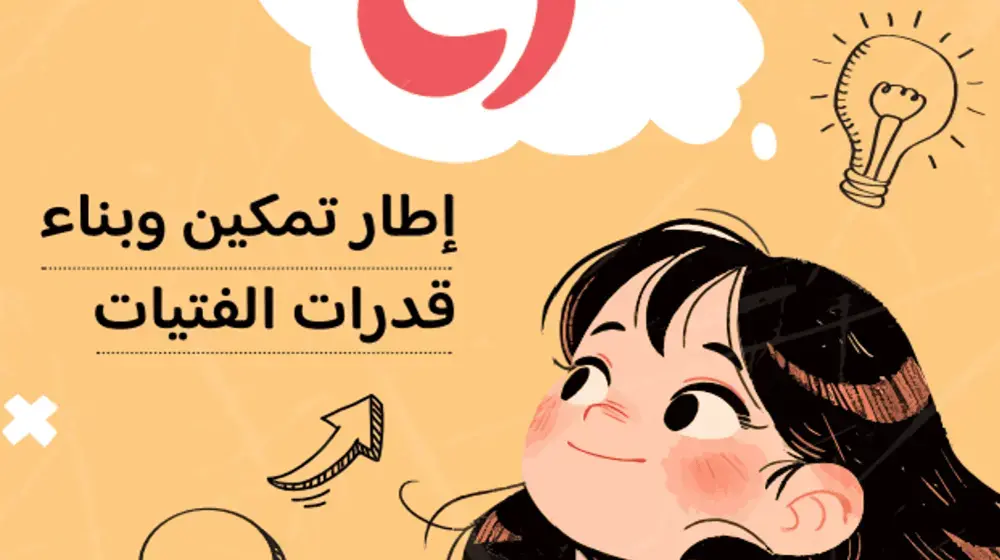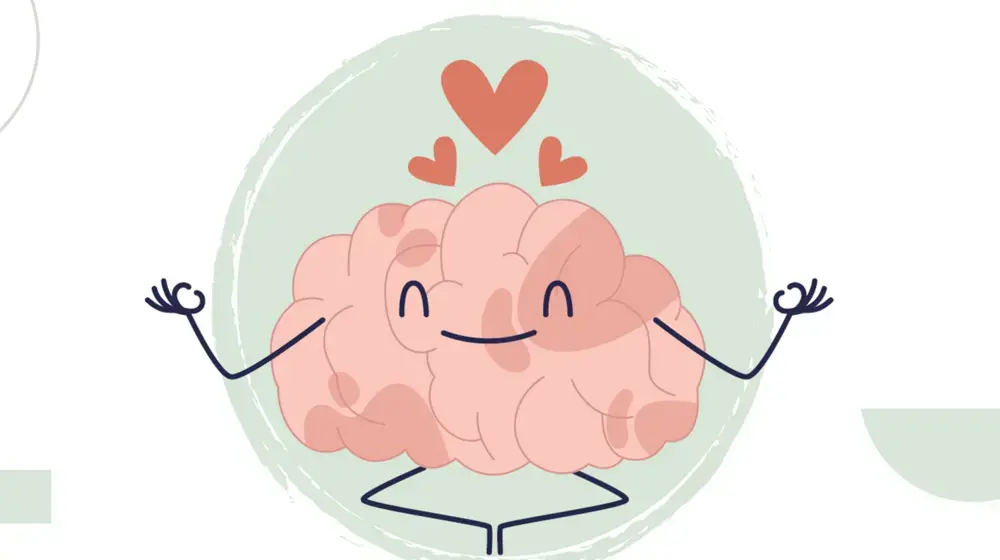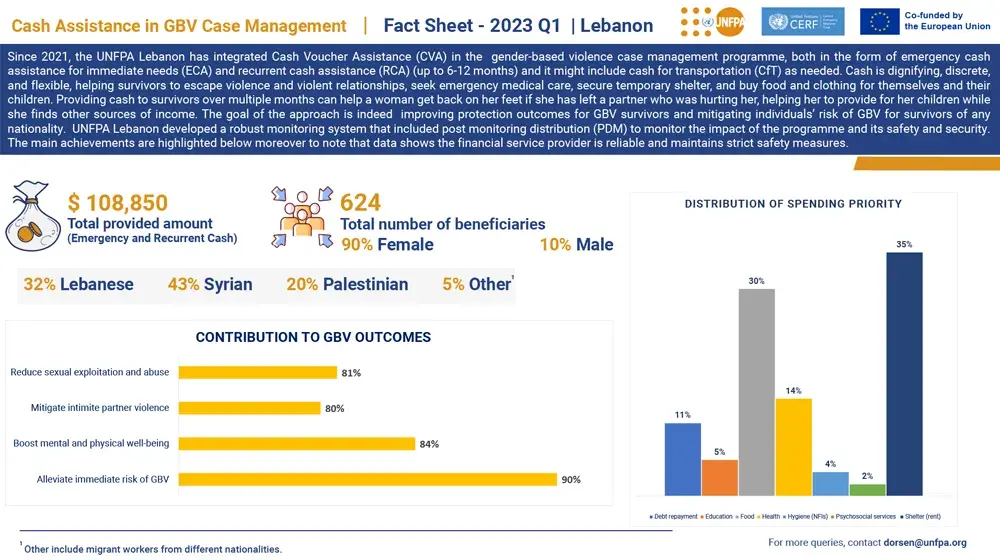The global 16 Days of Activism against Gender-Based Violence (25 November-10 December) has begun. On this occasion, the United Nations System in Lebanon and the National Commission for Lebanese Women (NCLW) are joining forces, for the second year in a row, to end and prevent gender-based violence in Lebanon.
This year’s campaign examines the challenges that survivors of GBV face and offers them practical guidance - legal, hotlines and prevention/response services - while encouraging women and youth to make a difference by speaking up on issues of gender-based violence.
The campaign highlights the pathways and services provided to women and girls in Lebanon who experience GBV and draws attention to the obstacles they encounter, when faced with violence, including discriminatory laws and practices.
Mrs. Claudine Aoun Roukoz, President of the National Commission for Lebanese Women stressed that the Global 16 days Campaign to end Violence against Women and Girls, launched in Lebanon amid a wave of change related to political practices, contributes to raising awareness on the need to address weaknesses in the existing legislative system related to women in order to eliminate all forms of discrimination against them. The NCLW prepared several texts aiming at adopting new laws or amending legislative provisions that would reduce the isssue of violence against women and girls. These texts include draft laws aimed at preventing child marriage and sexual harassment and impunity for sexual intercourse with a a minor, and raising the level of protection for victims in cases of domestic violence. Aoun Roukoz also said that there are high hopes on starting the implementation of the National Action Plan on UN Security Council Resolution 1325 on Women, Peace and Security, which preperation was supervised by the Commission, and which includes a special chapter on protecting women from violence. Aoun Roukoz added that the NCLW is following up the implementation of the national strategy to combat violence against women.
“The 16 Days of Activism are an opportunity to end the silence on violence, harassment and all forms of discrimination against women. Women should not be ashamed to speak up to defend their rights and society should not shy away from supporting them,” said UN Special Coordinator for Lebanon Jan Kubis. “The key is empowerment. Giving women their full and equal rights in society and enabling them to participate in decision-making processes will not only strengthen the country and its institutions, but society as a whole. Women are their own most powerful advocates as we saw them taking the lead in a national uprising, insisting on their rights and demanding a better future for their country. Their courage and determination should serve as an example for all and result in concrete changes, including greater participation in politics and public institutions, a national personal status law and greater protections against violence and abuse,” Mr. Kubis added.
Entitled We Reject Violence, Protection is Your Right (العنف مرفوض، الحماية حقِك)the campaign (25 November- 10 December) will run on social media with the #WeRejectViolence #ProtectionIsYourRight hashtags to challenge the current perception regarding women and girls survivors of GBV. Meant to resonate with the broadest audiences, it encourages everyone to act in support of women and girls who are at risk or survivors of GBV.
“Every woman has the right to live a life free of any form of violence and discrimination,” said Mr. Philippe Lazzarini, UN Resident and Humanitarian Coordinator for Lebanon. “Yet, more than 1 in 3 women around the world are facing different sorts of physical and sexual violence, and Lebanese women are no exception. Despite considerable strides in criminalizing domestic violence in Lebanon, we still hear of outrageous cases of violence perpetrated against women, often used to intimidate them, exercise dominance over them and deter their presence in the social, economic and political life,” Mr. Lazzarini added. “The persistence of gender-based violence jeopardizes our common goal of achieving gender equality and shaping ‘The Future We Want,’ a future that does not only ensure women empowerment but also the stability and prosperity of the entire society. The recent developments in Lebanon proved more than ever the leadership role of women in influencing transformational change, which we should capitalize on,” he concluded.
According to the United Nations Population Fund, “An average of 1 in 2 persons reported personally knowing someone subjected to domestic violence, 65% of reported incidents were committed by family members and 71% occurred in the perpetrator’s household”, in Lebanon.
The international campaign 16 Days of Activism Against Gender-Based Violence originated from the 1991 first Women's Global Leadership Institute and raises awareness and increases momentum toward ending violence against women and girls worldwide. The United Nations Secretary General, through the UNiTE to End Violence against Women Campaign, supports the 16 Days of Activism under 2019’s theme “Orange the World: Generation Equality Stands Against Rape!” that will run for two years and focus on rape as a specific form of violence against women and girls, during peace and war.
______________________________________________
The United Nations system in Lebanon comprises 23 agencies, funds and programmes as well as a peacekeeping mission, a political mission and a regional commission that cover a broad spectrum of peacekeeping, political, development, human rights and humanitarian work in Lebanon. The United Nations supports Lebanon to promote the country’s long-term peace and security, development and human rights priorities.
The National Commission for Lebanese women (NCLW) is an official institution established by law at the Presidency of the Council of Ministers in 1998 with the aim of promoting the status of women and ensuring equal opportunities for women and men. Its General Assembly is composed of personalities who are known for their activities related to women's affairs and is chaired by the woman delegated by the President of the Republic.
The Commission carries out advisory functions at the Presidency of the Government and public administrations and institutions, as well as liaison and coordination functions with various administrations, institutions, public, community and civic organizations and Arab and international organizations. The Commission also performs various operational functions, including the formulation of strategies and plans.




